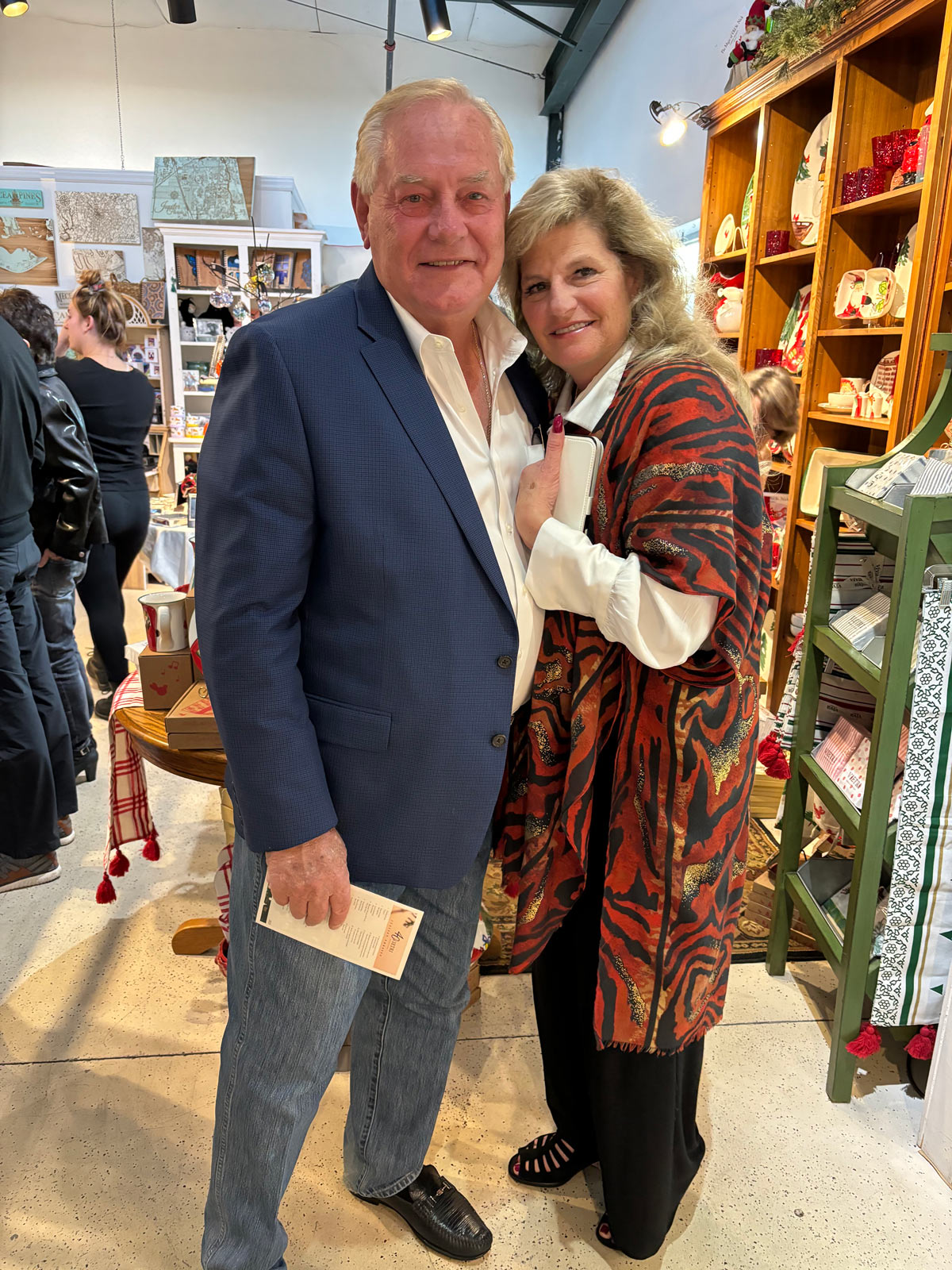It is 1987, and Don Young is rolling down the open road on the way to Raleigh, North Carolina with a chicken salad sandwich in his bag and a dream in his heart. He has a meeting with Rose’s stores, one of the few small clients that he serves as a member of Universal Media, a fledgling media agency just hoping to stay in the air. There are no planes, no covered meals– just Young, Rick Jones, his sandwich, and the drive.
It was not always this way for Young. Just a few years earlier, at age 31, he was a big-time radio sales manager in New York City, enjoying the perks and security that came with a fortified place in the industry. But when Don’s older brother, Jim Young, asked him to return to their home state of Pennsylvania to join him in starting a new media agency, the answer was simple.
“He wasn’t just my brother– he was my Dad, he was my best friend, all in one. It was kind of hard to say no to that,” Young said. “So, I ditched everything. And it was very scary, because I went from a very successful career in New York, making extraordinary money to $2,000 a month here and trying to figure out how I’m going to pay rent, how I’m going to pay my bills.”
So, Young drove, without any idea what the next few weeks or the next few decades would hold. And it is on this humble road that Young would find something– a treasure greater than any he could have ever imagined.
“Humility, to me, is the backbone of a great company,” Young said. “When you lose humility, you lose your sense of self.”
At the summit of a mountaintop, it is easy to forget what life was like at the base. But after dedicating 36 years of his life to Universal Media, it is the journey that keeps everything in perspective for Young.
Since those early days of long drives and packed lunches, when UMI served a list of clients you can count on your hands, the agency has evolved into one of the most well-regarded in the nation. And while plane tickets are well within the company’s budget in 2023, one aspect of UMI’s founding remains the foundation of its identity: the importance of personal relationships. Had it not been for the bond between the Young brothers, UMI may never have been born. And were it not for the emphasis the company places on its interpersonal connections, it would never have reached the place it is today.
“What is it that made Universal Media good? Why are we good at what we do? Why are we successful? People, people, people,” Young said. “Don Young didn’t build Universal Media– all the people here built Universal Media. At some point, people have to realize that money is just money. It’s not life. This is life. These people are life.”
It was not money that compelled Young to move his life from New York to Pennsylvania. And it was not money that fueled his dogged pursuit to make UMI the best it could possibly be.
But along with its central focus on human relationships, UMI has always placed a great deal of emphasis on the way financial generosity can act as the manifestation of human support.
“Giving back is an attitude. It’s not a dollar amount,” Young said. “And I get to see the ramifications of the money that we give in our community. We as a company are all about helping local communities. The local money stays here.”
Young says he and his brother’s upbringing played an enormous role in shaping their charitable ways. The pair were raised in a Central PA orphanage and were forced to rely on each other for support. Now, Young in supporting local children’s charities like the Children’s Miracle Network, Young hopes to provide that support for others in need.
There has never been a day when charity was not an integral piece of UMI’s existence. But in the company’s infancy, it was the addition of a new face that changed the scope of that mission, as well as Young’s life, forever.
—————
It is 1988, and UMI is on the brink of a drastic, company-altering change: they are ready to hire an employee.
There was already a third member of the team– Rick Jones, who had voluntarily lived off his credit cards for a year and taken no money from the business, and whose wife, Diane, was the chef behind those early chicken salad sandwiches. Those sacrifices earned Jones the role of partner. But after years of him and the Youngs barely affording to pay themselves, the agency was in a state successful enough to support another stream of paychecks. But that is not to say the decision was without financial pause– or outright opposition.
“Ann Shields was our first real employee. We couldn’t pay her a lot, and I was adamantly opposed to hiring her,” Young said. “I just said ‘We do not need an employee at this point.’ But my brother Jim said ‘Just meet with her. You’re gonna see what I see.’”
Young begrudgingly agreed to an interview, promising Shields just a sliver of his time.
“He said, ‘Sit down, I’ll give you 20 minutes,’” Shields recalled of the initial interview. “And I said, ‘I bet you’ll give me at least two hours.’ And three hours later I walked out of the office.”
“I called my brother and said ‘Yeah, I get it,’” Young said.
Shields instantly became an asset to the UMI team, and over 30 years later, she remains the agency’s Chief Customer Officer. She also spearheads the company’s charitable initiatives. And after initially agreeing to spend only 20 minutes with Shields, Young later agreed to spend the rest of his life with her. The pair married in 1991, and have a total of four children, Casie, Kari, Taylor, and Brandon.
But while UMI was taking a huge step forward, it was also suffering a colossal loss. The agency’s largest partner, MTA Truck Driving School, was going out of business and owing Universal hundreds of thousands of dollars, leaving UMI’s founders with a choice: declare bankruptcy, or fight on. For Young, going down was never an option.
“We decided that we would not voluntarily go into bankruptcy,” Young said. “So, despite legal advice to declare bankruptcy, we went out and borrowed a tremendous amount of money so that none of our media stations would lose any money during the transition. They didn’t lose a nickel, while we got nothing. We had three years to pay back the loan. And within the next year, we had picked up two major pieces of business– Bon Ton and Weis Markets– and we paid back that loan in a year and a half.”
Six years ago, Young retired as President of UMI. He still serves as the company’s Chairman, but after nearly a lifetime of service, he passed the day-to-day operations to Anne Carnathan, who still occupies the role today.
After taking a step back from the business he helped build, Young has gained a renewed perspective on UMI’s journey. Even as he made that leap of faith all those years ago, he never could have pictured this.
“It was very difficult when we first started to understand that we could be this large,” Young said. “Where we originally came from in New York, there was a big financial difference in terms of the accounts we were dealing with there and the accounts we were dealing with here. So it was difficult to say ‘Oh, someday.’ But along this journey something organic happened. Through our extensive experiences in a local retail centric media environment, and our ability to extend that into national media, we have come to understand retail media better than anyone else in this nation. And we’ve proven that with success after success after success.
I left the company in very capable hands with Anne Carnathan. The company has grown exponentially in the past six years, thanks in no small part to her vision to grow our data and digital expertise to nationally recognized levels. Today we are more positioned than ever to continue the UMI legacy.



